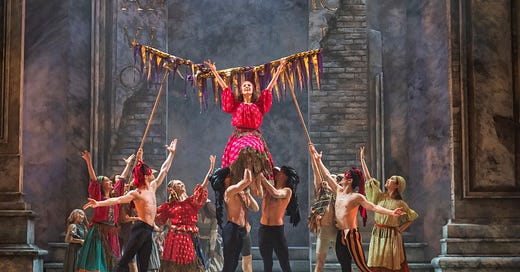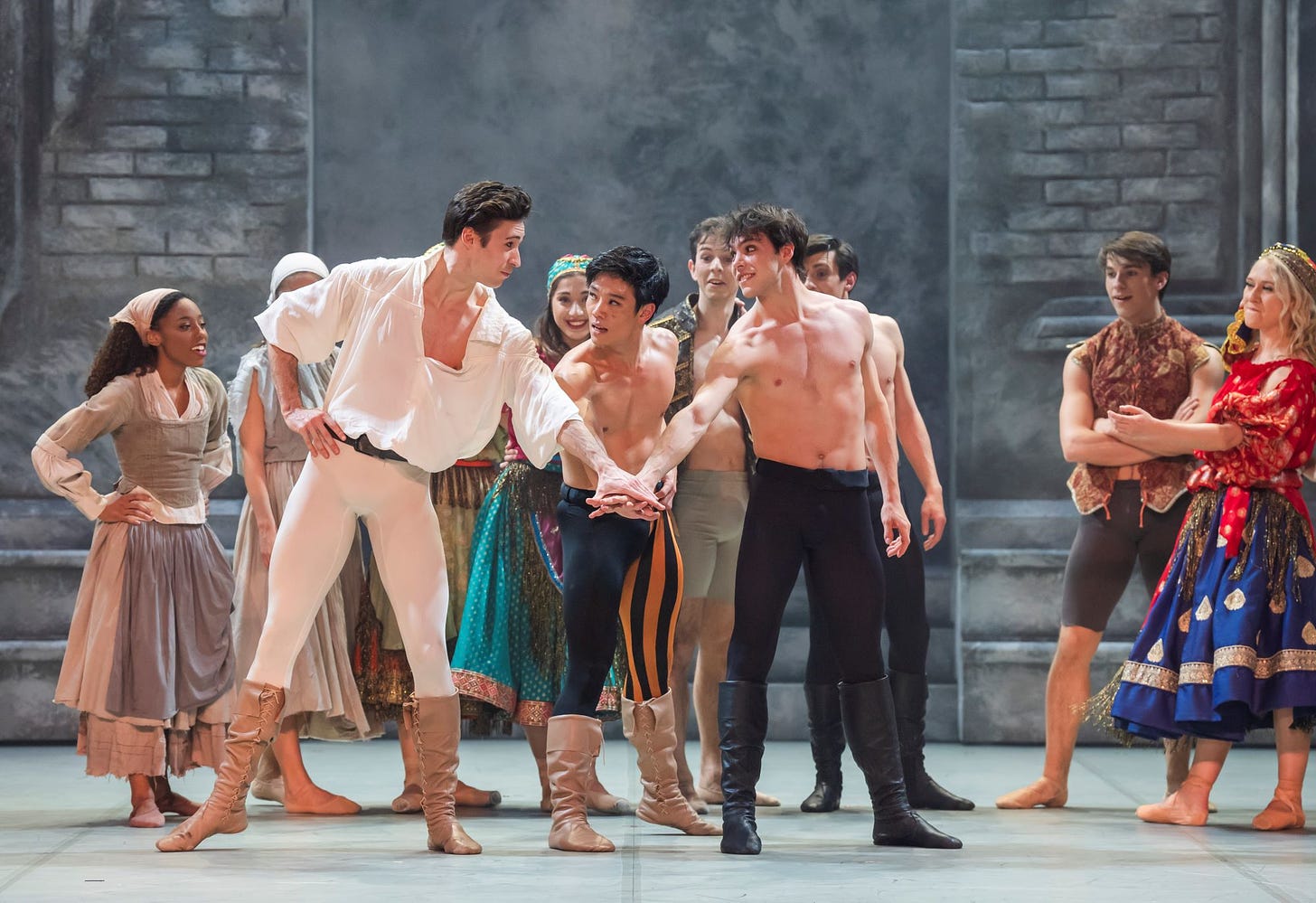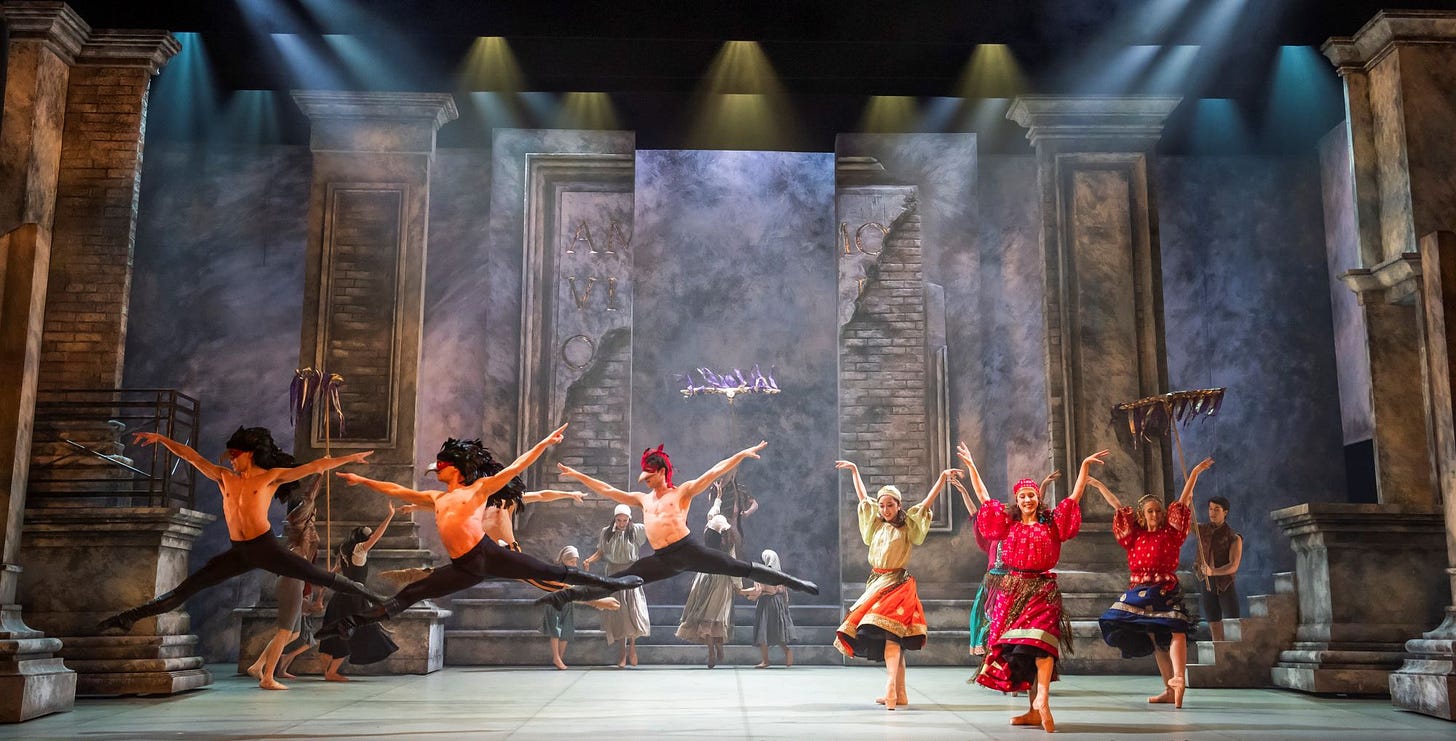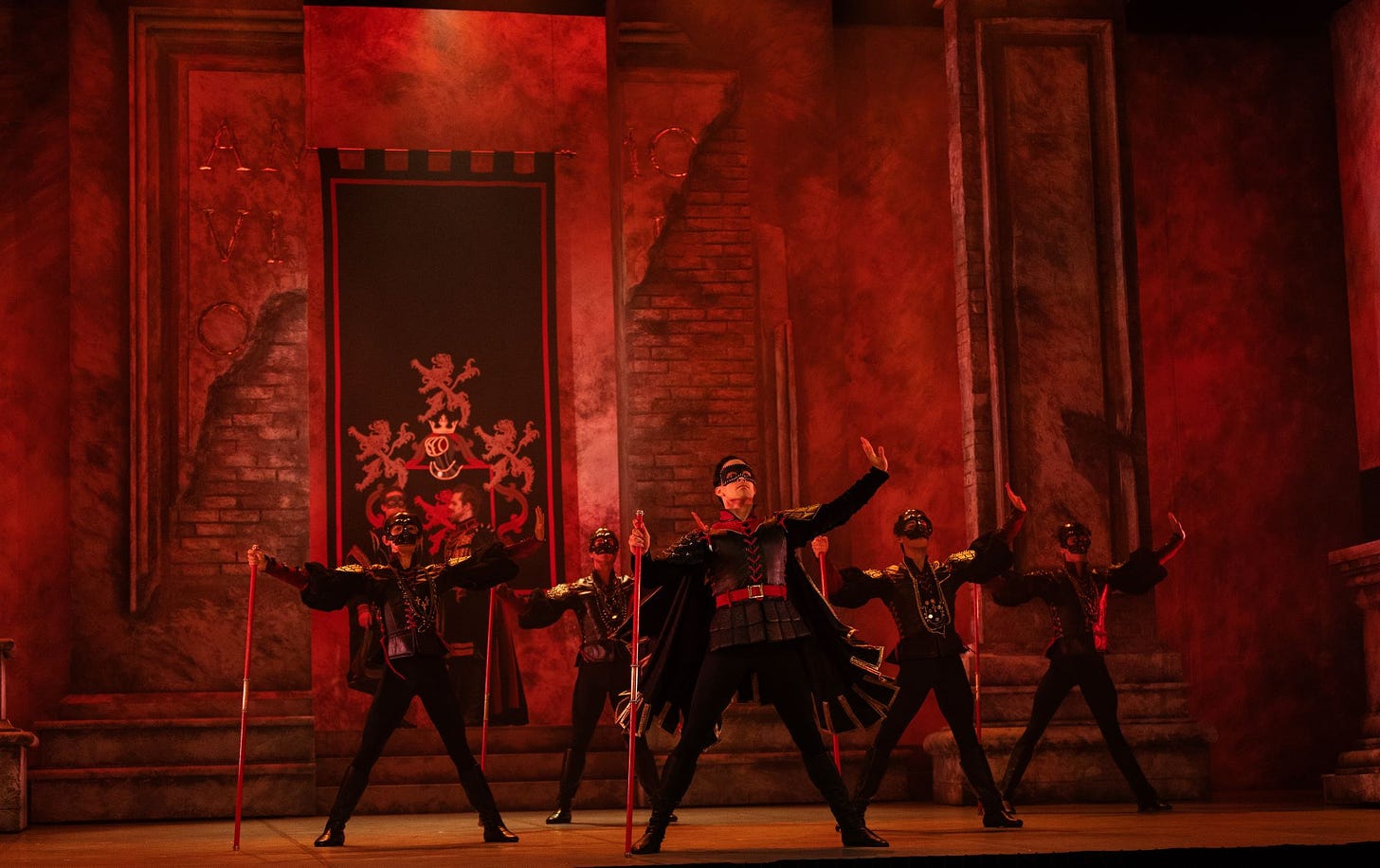Christopher Gable, who was artistic director of Northern Ballet for just over 10 years until his death from cancer in 1998, left the company a wonderful legacy, as we’re seeing this week.
His award-winning production of Romeo and Juliet, with choreography by the Italian Massimo Moricone, became an audience favourite after entering the repertoire.
But as current artistic director Federico Bonelli explains in the programme, the production was forced into retirement in 2015 when the props and costumes created under the eagle eye of Lez Brotherston were flood damaged.
Now, after painstaking restoration work, it is back and looking as fresh as a daisy.
Romeo and Juliet is a Shakespearean tragedy and as such it can be a slog, a tale of hopeless love blossoming briefly and then wilting amid death and despair.
But take away the text, let nimble actions do the talking and overlay with music by Prokofiev and you have a lighter, more hypnotic method of storytelling.
This versatile company of dancers is more than equal to Moricone’s demanding though wonderfully fluid moves.
They animate the imposing Brotherston set, a Verona of mighty marble and crumbling Latin text - “Amo” (“I love”) clings on defiantly - and the courtly scenes involving the rival Montagues and Capulets in all their brightly costumed glory make for a thrilling spectacle.
Dancing the title roles on Wednesday (it’ll change over the course of the week) were Sarah Chun and Kevin Poeung, American and French respectively but Northern Ballet stalwarts whose years of experience showed.
It takes a while for these star-cross’d lovers to command the stage because for so much of the time there’s so much going on. Your eyes feast on colour, comedy – yes, quite a lot of it - and sheer athleticism.
But from the touching balcony duet, you're with them all the way.
Bravo to a company based in Leeds but representing a world of dance – a melting pot of talent with British dancers far outnumbered by others from around the globe.
Bonelli is Italian and the company representative in Newcastle on Wednesday was the Brazilian Daniel de Andrade, one-time Northern Ballet principal and now associate artist.
Three acts, two intervals and an audience spellbound from first to last. Christopher Gable, if he were watching, would have been delighted.
One thing, though, might have irked him, as it did the representative of the Musicians’ Union leafleting outside the theatre and urging people to sign a petition in favour of live music.
Bonelli writes in the programme of “challenging times for the company and for the arts industry at large”.
To cut costs, Northern Ballet is now using recorded music in most performances.
Many might not mind or even notice. Matthew Bourne has always used recorded music.
But Northern Ballet traditionally hasn’t and in a week that has seen the launch of Newcastle Gateshead Music City, with accompanying pledges of greater opportunities for musicians, it would seem remiss to let this loss of opportunity pass without comment.
Did the recorded music spoil my night? No. And arguably, since six rows of seats didn’t have to be removed to accommodate the orchestra pit, more people could see the performance.
Did I notice? Yes, once or twice when the music seemed to stop rather abruptly.
But live music has to be better than a dead recording and if this is the thin end of a wedge, then it’s a crying shame.
Romeo and Juliet runs until Saturday, October 26. Tickets from the Theatre Royal box office or website.









You miss the point completely and posit a howling inaccuracy.
Theatre is all about the live experience; the establishment of tension and the resolution thereof. Once the live music has been removed from the equation, half of the enjoyment has been consigned to the dustbin.
Everything else is just playing catch-up, with varying degrees of success.
The howling inaccuracy, and you should be ashamed of this, is the assertion that Matthew Bourne has always used recorded music. What nonsense! I worked with him frequently, on Swan Lake and Car Man, and the music was live, vital and integral to the evening.
The fact that, due to financial constraints, he has now decided to use mainly recorded music for the performances, is a purely financial decision. One which I feel he will come to regret as it diminishes the performance as a whole.
Quite rightly there were protesters outside the theatre. And long may they continue until music and the musicians which perform it are given the recognition that they deserve. For, without them, a great evening is demoted to the simply bland.
I LOVE Northern Ballet Theatre. I loved working with this company. It is the hardest working of all the UK companies. Depriving them of the essential musical support reeks of the first step in disassembling it, diluting it into an anodyne version of its former self and waving it goodbye.
This needs to stop. Now.